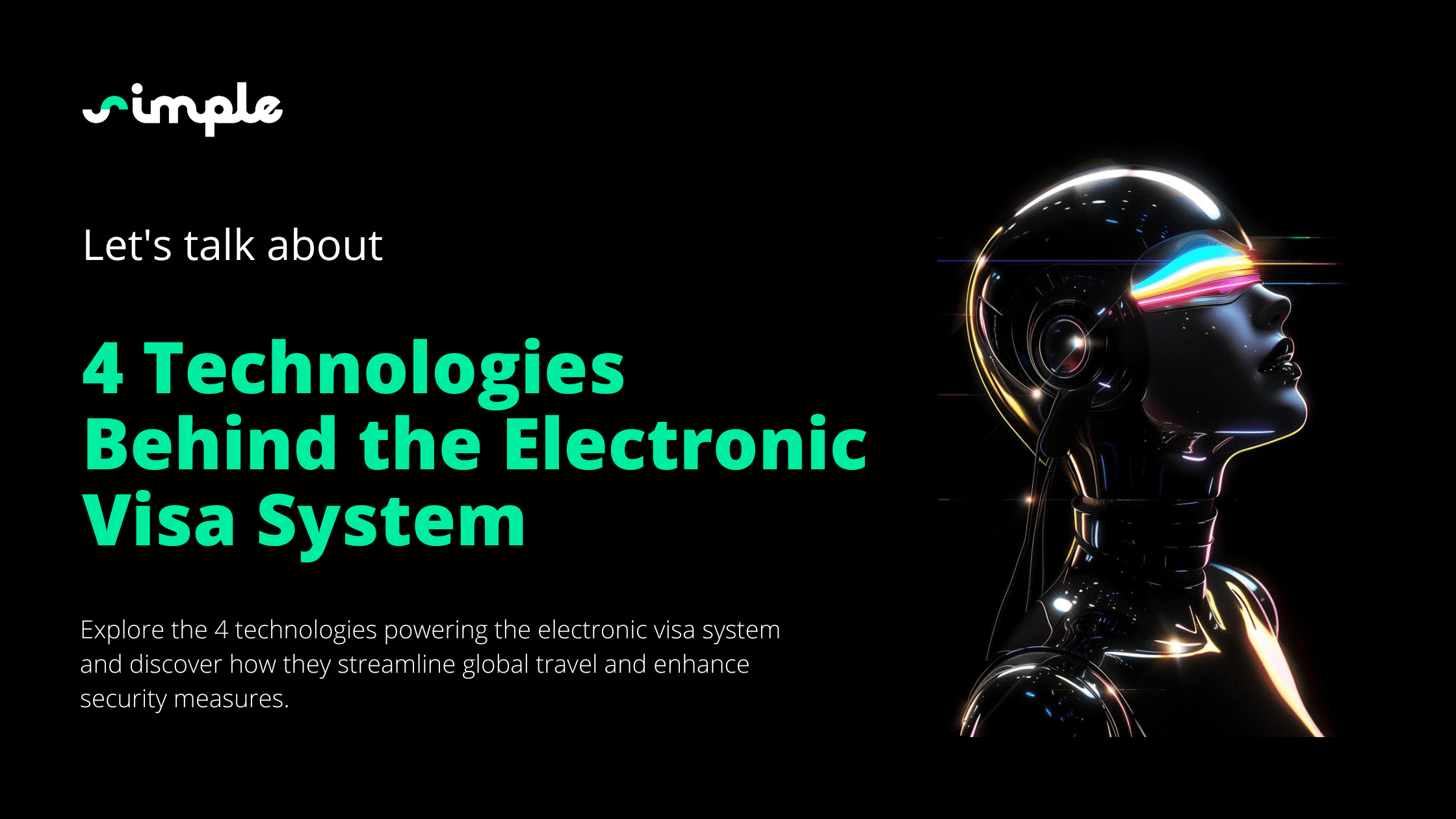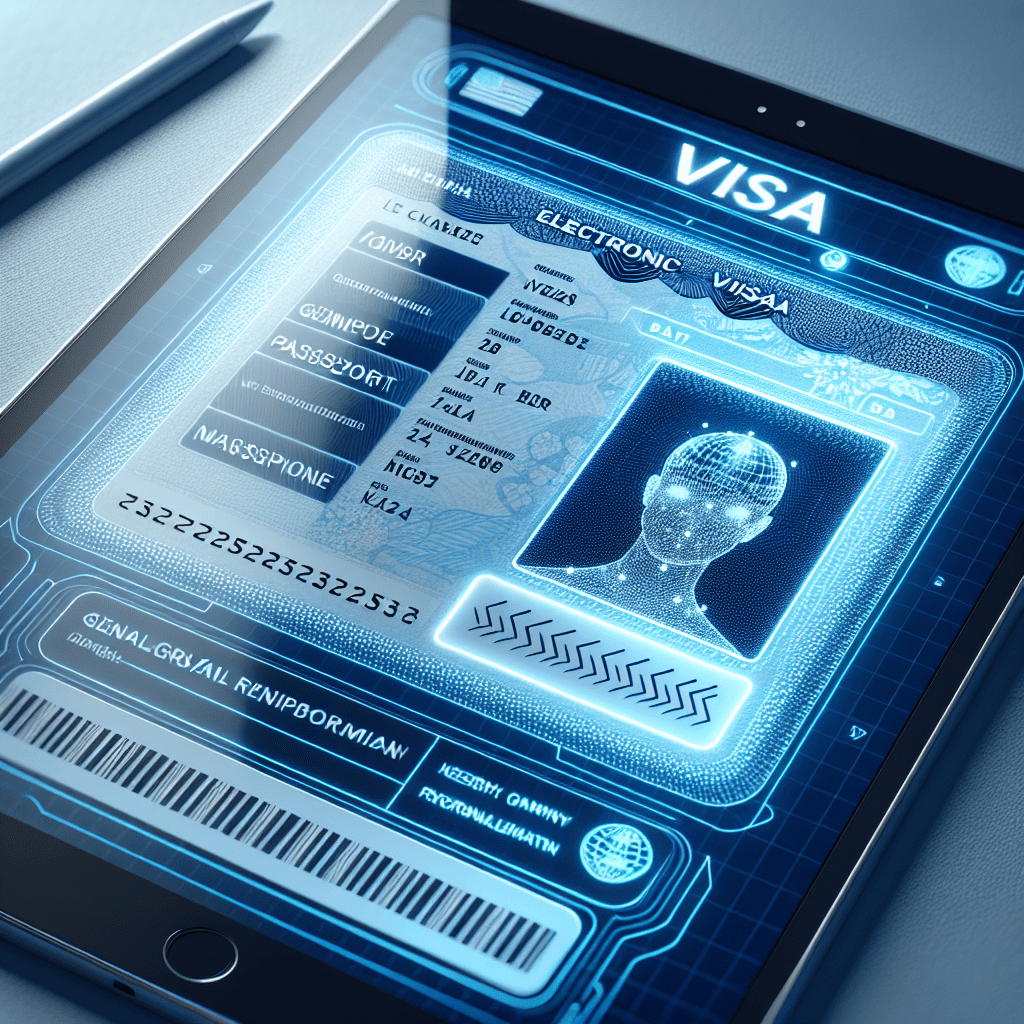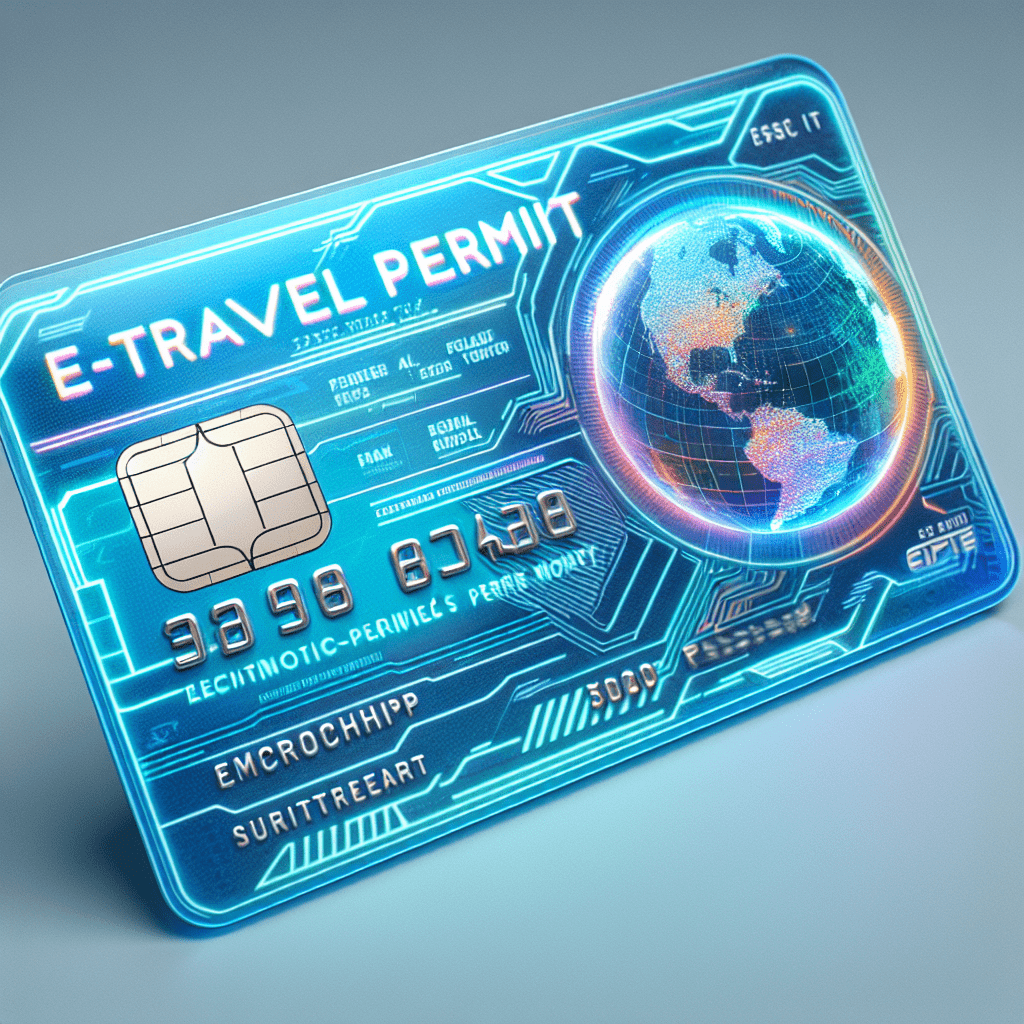4 Technologies Behind the Electronic Visa System

In the realm of global travel, electronic visas have emerged as a pivotal innovation, streamlining the process of obtaining travel authorization. As international travel becomes increasingly accessible, the demand for efficient and secure visa solutions has grown exponentially. The transition from traditional paper-based visa systems to digital solutions marks a significant evolution in how travelers interact with immigration authorities. This shift not only enhances convenience for travelers but also bolsters security and efficiency for governments worldwide.
Electronic visas, or e-visas, represent a modern approach to travel documentation, leveraging advanced technologies to facilitate seamless entry into foreign countries. These digital travel authorizations eliminate the need for physical paperwork, allowing travelers to apply for and receive their visas online. The integration of cutting-edge technologies is at the heart of this transformation, ensuring that the process is both user-friendly and secure. Understanding the technologies that power electronic visa systems is crucial for appreciating their impact on global travel. For more information on electronic visas, visit our electronic visa page.

Biometric Authentication
Use of Biometric Data to Enhance Security
Biometric authentication has become a cornerstone of the electronic visa system, offering a robust solution to enhance security and streamline the visa application process. By utilizing unique biological characteristics such as fingerprints and facial recognition, electronic visa systems can significantly reduce the risk of identity fraud. The importance of these technologies cannot be overstated, as they provide a reliable method of verifying an individual’s identity, ensuring that the person applying for a visa is indeed who they claim to be.
Fingerprint recognition, for instance, is a widely adopted biometric technology due to its accuracy and ease of use. Similarly, facial recognition technology has advanced to a point where it can accurately identify individuals even in challenging conditions. These technologies are crucial in preventing identity fraud, a persistent issue in traditional visa systems. By incorporating biometric data, electronic visa systems can offer a higher level of security, making it more difficult for fraudulent activities to occur.
Integration with Databases for Verification
The integration of biometric authentication with extensive databases is another critical aspect of the electronic visa system. This integration allows for seamless cross-country data access, enabling immigration authorities to verify an applicant’s identity in real-time. By accessing international databases, authorities can quickly confirm the authenticity of the biometric data provided, ensuring that the individual has no prior history of fraudulent activities or security threats.
Real-time authentication processes are made possible through sophisticated algorithms and high-speed data processing capabilities. These technologies allow for instant verification, reducing the time required for visa processing and enhancing the overall efficiency of the system. The ability to access and verify data from multiple sources ensures that the electronic visa system remains secure and reliable, providing peace of mind for both travelers and authorities.
Privacy Considerations and Advancements
While biometric authentication offers numerous benefits, it also raises important privacy considerations. The collection and storage of sensitive biometric data necessitate the implementation of robust encryption technologies to protect this information from unauthorized access. Advanced encryption methods are employed to ensure that biometric data remains secure throughout the entire visa application process.
Building public trust is essential for the widespread adoption of biometric authentication in electronic visa systems. Transparency in how biometric data is collected, stored, and used is crucial in addressing privacy concerns. By clearly communicating the measures in place to protect personal information, authorities can foster trust and confidence among travelers. As technology continues to evolve, ongoing advancements in encryption and data protection will further enhance the security and privacy of biometric authentication in electronic visa systems.

Web-based Application Platforms
User-friendly Online Interfaces for Visa Applications
The advent of web-based application platforms has revolutionized the way travelers apply for visas, making the process more accessible and efficient. A key feature of these platforms is their user-friendly online interfaces, which are designed to provide a seamless experience for applicants. By focusing on streamlined design, these platforms ensure that users can easily navigate the online visa application process without unnecessary complications.
Accessibility is a crucial consideration in the design of these platforms. With the increasing use of mobile devices, it is essential that web-based visa application systems are optimized for various devices, including smartphones and tablets. This ensures that applicants can complete their applications from anywhere, at any time, without being restricted to a desktop computer. By offering a responsive design, these platforms cater to the diverse needs of travelers, enhancing the overall user experience.
Backend Systems Supporting Secure Data Transmission
Behind the user-friendly interfaces of web-based application platforms lie sophisticated backend systems that support secure data transmission. These systems are often cloud-based, providing scalable storage and processing capabilities that can handle large volumes of data efficiently. Cloud-based solutions offer several advantages, including flexibility, cost-effectiveness, and the ability to quickly adapt to changing demands.
Ensuring data protection is paramount in the electronic visa system, and robust cybersecurity measures are implemented to safeguard sensitive information. Encryption technologies are employed to protect data during transmission, while secure servers ensure that stored information remains safe from unauthorized access. By prioritizing data security, web-based application platforms build trust with users, reassuring them that their personal information is handled with the utmost care.
AI-driven Support and Decision-making
Artificial intelligence plays a significant role in enhancing the functionality of web-based application platforms. Intelligent chatbots are integrated into these systems to provide real-time assistance to applicants, answering queries and guiding them through the online travel visa process. These chatbots are designed to understand and respond to a wide range of questions, offering a level of support that was previously unavailable in traditional visa systems.
In addition to applicant support, AI-driven decision engines are employed to streamline the e-visa processing workflow. These automated systems analyze application data and make decisions based on predefined criteria, significantly reducing the time required for digital visa approval. By leveraging AI technologies, web-based application platforms can offer a more efficient and reliable service, benefiting both travelers and immigration authorities.

Blockchain Technology
Enhancing Transparency and Traceability in Visa Processing
Blockchain technology is increasingly being recognized for its potential to enhance transparency and traceability in the electronic visa system. One of the key advantages of blockchain is its ability to create immutable records of application data. Once information is recorded on a blockchain, it cannot be altered or deleted, ensuring that all data related to an online visa application remains accurate and tamper-proof. This level of transparency is invaluable for both applicants and authorities, as it provides a clear and verifiable history of each application.
The use of blockchain also simplifies auditing and compliance checks. With all application data stored on a distributed ledger, authorities can easily access and review records to ensure compliance with immigration policies and regulations. This streamlined approach to auditing not only saves time but also reduces the potential for errors and discrepancies, further enhancing the integrity of the electronic visa system.
Secure Peer-to-Peer Data Exchange
Blockchain technology facilitates secure peer-to-peer data exchange, a critical feature for the electronic visa platform. By utilizing distributed ledger systems, blockchain enables data to be shared directly between parties without the need for a central authority. This decentralized approach reduces the risk of data breaches and unauthorized access, as there is no single point of failure that can be exploited by malicious actors.
Reducing dependency on central authorities also enhances the efficiency and resilience of the electronic visa system. With data distributed across multiple nodes, the system can continue to operate even if one or more nodes are compromised. This ensures that the digital travel authorization process remains uninterrupted, providing a reliable service for travelers and authorities alike.
Potential for Future Innovation in Visa Systems
The integration of blockchain technology into electronic visa systems opens up exciting possibilities for future innovation. One such innovation is the use of smart contracts, which can automate various aspects of the visa application process. Smart contracts are self-executing agreements with the terms of the contract directly written into code. They can be used to automatically verify application data, trigger digital visa approval, and issue electronic travel permits, significantly reducing the time and effort required for e-visa processing.
Another promising area of development is the expansion into decentralized identity management. By leveraging blockchain, electronic visa systems can offer a secure and efficient way to manage digital identities, allowing travelers to maintain control over their personal information. This approach not only enhances privacy and security but also simplifies the process of verifying identity across borders, paving the way for a more seamless and integrated global travel experience.

Conclusion
The integration of advanced technologies such as biometric authentication, web-based application platforms, and blockchain technology has significantly modernized the landscape of international travel. These innovations have transformed the electronic visa system, making it more efficient, secure, and user-friendly. By leveraging biometric data, electronic visa systems have enhanced security measures, reducing the risk of identity fraud and ensuring that only legitimate travelers are granted entry. The user-friendly interfaces of web-based platforms have simplified the online visa application process, making it accessible to a broader audience and accommodating the diverse needs of global travelers. Meanwhile, blockchain technology has introduced a new level of transparency and traceability, ensuring that all application data is accurate and tamper-proof.
These technological advancements have not only improved the efficiency of e-visa processing but have also contributed to a more seamless and integrated travel experience. As a result, travelers can now enjoy the convenience of applying for visas online, receiving digital travel authorizations, and entering foreign countries with electronic travel permits. The impact of these technologies on modernizing international travel is profound, setting the stage for further innovations in the future.
Looking ahead, the future of electronic visa systems holds exciting possibilities for continued development and improvement. As technology continues to evolve, we can expect to see even more sophisticated solutions that enhance the efficiency and security of the visa application process. The potential for future innovations, such as the widespread adoption of smart contracts and decentralized identity management, promises to further streamline the process of obtaining digital entry visas. These advancements will not only benefit travelers by providing a more convenient and secure experience but will also aid governments in managing immigration more effectively.
Moreover, as global travel continues to grow, the demand for efficient and secure electronic visa systems will only increase. This will drive further investment in research and development, leading to new breakthroughs and improvements in the technology underpinning these systems. By embracing these advancements, electronic visa platforms will continue to play a crucial role in facilitating international travel, ensuring that the process remains as seamless and secure as possible for all parties involved.